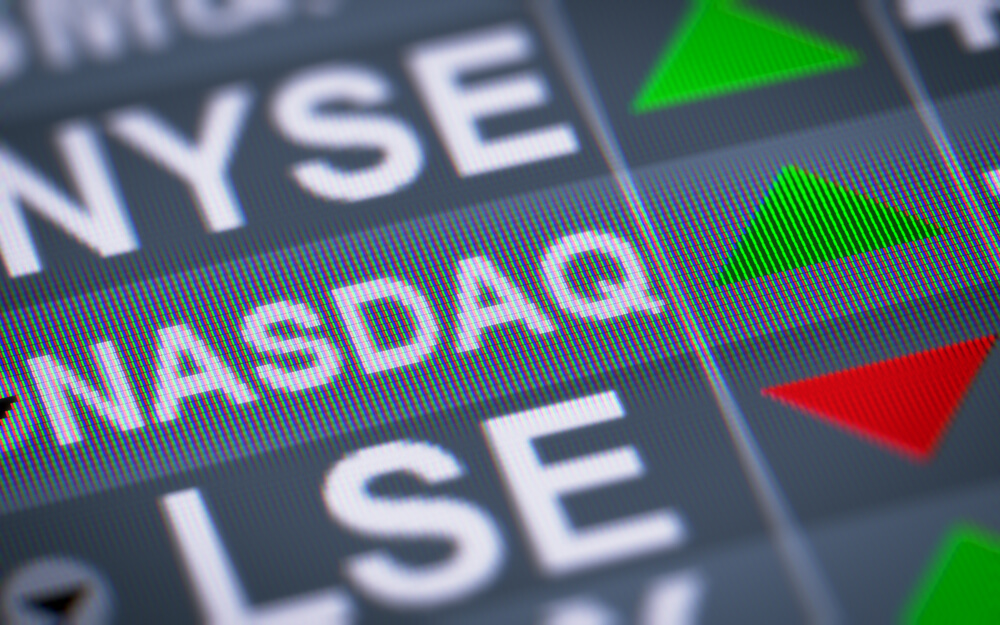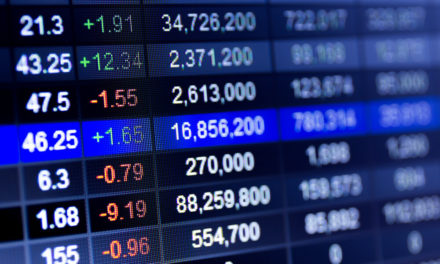Major U.S. stock indexes ended a wobbly day with meager gains, enough to push them slightly further into record territory and more in Monday’s Stock Market Update.
Trading was indecisive for much of the day Monday, as losses for banks mostly offset gains in other sectors including technology and health care.
Citigroup ended a touch lower despite reporting higher earnings. JPMorgan Chase, which reports earnings Tuesday, lost 1.2%. Energy stocks were also weak, but gains for technology and health care stocks helped keep the S&P 500 and other indexes close to the highs set on Friday.
Stocks have surged since early June on increasing expectations that the Federal Reserve will cut interest rates to help the economy, and investors are virtually certain that it will happen at the next Fed meeting at the end of this month. The only question, investors say, is how deeply the Fed will cut when it lowers rates for the first time in a decade.
Until then, the main drivers for the market will likely be the hundreds of earnings reports scheduled to come from big companies, showing how much profit they made from April through June. “It’s waiting for this really all important second-quarter earnings season to heat up,” said Thomas Martin, senior portfolio manager at Globalt Investments.
Expectations are generally dim, and Wall Street is forecasting a 3% drop in earnings per share for S&P 500 companies from a year ago. That would mark the first back-to-back drop in three years, according to FactSet. This week, roughly a fifth of the companies in the S&P 500 are set to report their second-quarter results.
Several economic reports are also on the schedule, including updates on retail sales, the housing industry and shoppers’ confidence. The U.S. economy has generally remained solid, but investors don’t expect this week’s reports to alter the direction of the Fed, which has already given hints about rate cuts given weakening economic trends around the world.
The White House’s repeated threats to raise tariffs has made companies at home more hesitant and hurt trade internationally. They’re a big reason that China on Monday reported its weakest quarter of economic growth in at least 26 years.
“You could make a case that the Fed shouldn’t need to cut in this market, but they’ve clearly prepared the market for a cut,” said Jon Adams, senior investment strategist at BMO Global Asset Management.
STOCK MARKET UPDATE
KEEPING SCORE: The S&P 500 index rose less than 1 point to 3,014. The Dow Jones Industrial Average rose 27 points, or 0.1%, to 27,359. The Nasdaq added 14 points, or 0.2%, to 8,258.
Bond prices rose. The yield on the 10-year Treasury fell to 2.09%.
FALLING FINANCIALS: Financial stocks were among the worst performers in the S&P 500, down 0.4%. Citigroup initially fell as much as 2.4% after reporting better-than-expected results, but its stock recovered as the day progressed. It ended down less than 0.1%.
JPMorgan Chase did not have as strong a recovery, and its 1.2% drop was one of the biggest drags on the S&P 500 of any company. The bank is scheduled to report its second-quarter results on Tuesday.
Lower interest rates can hurt banks by restricting the profits they make from making loans.
EASIER HURDLES: Every earnings reporting season, companies usually turn in results that top analysts’ expectations. That may be even easier to do this time around, with analysts forecasting the worst drop in quarterly earnings for the S&P 500 in three years at 3%, according to FactSet.
“The bar for corporate earnings has been set quite low, and we don’t think it will take much to surprise on the upside,” Adams said.
That’s why he said he’ll be paying close attention to which companies are able to grow their revenues despite the stronger dollar and weakening economic trends around the world, and not just which companies are beating earnings forecasts. He’s also focusing on companies able to keep their profit margins high, when wage growth for workers at many companies is starting to nudge higher.
SAPPED STOCKS: Energy stocks fell 0.9% for the sharpest drop among the 11 sectors that make up the S&P 500. Lower prices for oil and natural gas dented shares across the industry.
Noble Energy dropped 4.3%, Devon Energy lost 3.4% and Marathon Oil fell 3.1%.
Benchmark U.S. crude fell 94 cents to settle at $59.27 per barrel. Brent crude, the international standard, lost 58 cents to $66.14 a barrel. Natural gas dropped 5 cents to $2.41 per 1,000 cubic feet, heating oil fell 3 cents to $1.95 per gallon and wholesale gasoline lost 5 cents to $1.93 per gallon.
The price of gold edged up $6.37 to $1,416.27 an ounce, silver rose 19 cents to $15.48 an ounce and copper rose 2 cents to $2.71 a pound.
DEAL OR NO DEAL?: Security software maker Symantec slumped 10.6% for the largest loss in the S&P 500, and chipmaker Broadcom rose 1%, after CNBC reported that the companies ended negotiations over a possible deal.
SLOW AND STEADY: European biotech company Galapagos’s U.S.-listed shares surged 17.1% after Gilead Sciences invested $5 billion in it. The company is still in its development stage and has no product on the market. Its most promising drug candidate is now in its final series of studies aimed at treating arthritis and stomach conditions.
Gilead Sciences rose 2.7% for one of the largest gains in the S&P 500.
ON DESCENT: Boeing sank 1% as the airplane maker faces the possibility that its 737 Max problems could keep the plane grounded into next year.
The loss helped drag industrial stocks in the S&P 500 down 0.4% for the third-worst loss among the index’s 11 sectors.
RATES: The yield on the 10-year Treasury dipped to 2.09% from 2.10% late Friday. The two-year Treasury yield, which is more affected by expectations of Fed rate moves, held steady at 1.83%.
© The Associated Press. All rights reserved.



